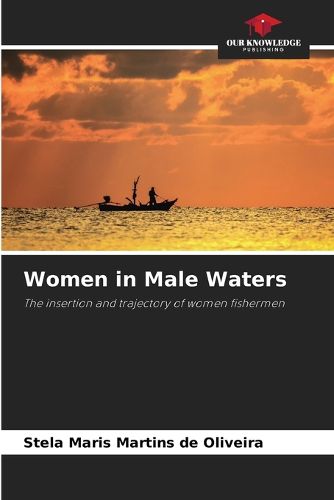Readings Newsletter
Become a Readings Member to make your shopping experience even easier.
Sign in or sign up for free!
You’re not far away from qualifying for FREE standard shipping within Australia
You’ve qualified for FREE standard shipping within Australia
The cart is loading…






In this book, the author invites the reader to navigate the waters of gender relations, in the seas of power relations between male and female. Women in Masculine Waters is a book that brings together the results of research carried out between December 2010 and March 2011 into the insertion and trajectory of women in the fishing profession in the municipality of Sao Jose do Norte, in the state of Rio Grande do Sul, Brazil. The research was analysed from the perspective of the social constructions of gender, masculinities and power relations from a post-structuralist cultural studies perspective. This approach is essential for studying gender relations in the fishing industry of Sao Jose do Norte. In this work it is possible to see the invisibility of women in fishing and their subordination to their husbands, the result of unequal power relations. This book is recommended for students and professionals looking to deepen their knowledge of gender relations, as it offers them the results of life as it is. Happy reading!
$9.00 standard shipping within Australia
FREE standard shipping within Australia for orders over $100.00
Express & International shipping calculated at checkout
In this book, the author invites the reader to navigate the waters of gender relations, in the seas of power relations between male and female. Women in Masculine Waters is a book that brings together the results of research carried out between December 2010 and March 2011 into the insertion and trajectory of women in the fishing profession in the municipality of Sao Jose do Norte, in the state of Rio Grande do Sul, Brazil. The research was analysed from the perspective of the social constructions of gender, masculinities and power relations from a post-structuralist cultural studies perspective. This approach is essential for studying gender relations in the fishing industry of Sao Jose do Norte. In this work it is possible to see the invisibility of women in fishing and their subordination to their husbands, the result of unequal power relations. This book is recommended for students and professionals looking to deepen their knowledge of gender relations, as it offers them the results of life as it is. Happy reading!